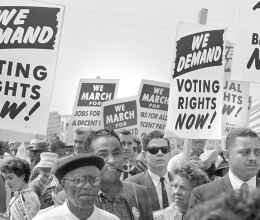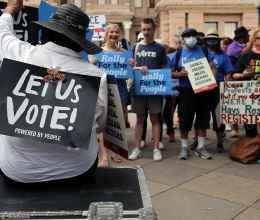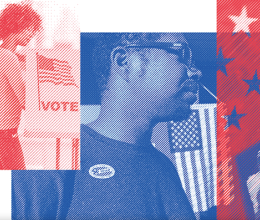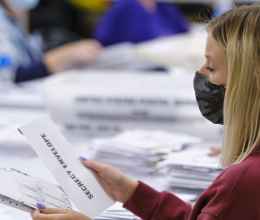Even as we celebrate a great victory in the Supreme Court on the ruling of Windsor vs. the United States (down with DOMA!) we must acknowledge that not all rulings this week have been in the favor of justice and equality.
Two days ago the Supreme Court ruled 5-4 on the repeal of the coverage formula of Section 5 of the Voting Rights Act. The Voting Rights Act, implemented in 1965, protects those who have been historically disenfranchised (i.e. people of color and immigrants) from the states seizing their rights to vote through subversive tactics such as poll taxes or literacy tests. Section 2 of the Voting Rights Act prohibits tactics such as these: voting regulations with the specific intent of preventing those of any race or ethnicity from voting. Section 5 was a little bit more precise. This Section directly addressed those states whose have historically disenfranchised minority race or language groups. Section 5 decreed that any changes to voting regulations in certain "jurisdictions" must be given the stamp of approval by the Department of Justice. Basically, it was a buffer for racist disenfranchisement, protecting the rights of people in those "jurisdictions" who would steal them away.
While Section 5 remains, the coverage formula, deciding which states must abide by the pre-clearance requirement, does not. Now the power lies with Congress to decide upon a new coverage formula, and we will all wait with baited breath to see if justice wins out. If certain "jurisdictions" are given the license to make their own voting regulations without pre-clearance, the voices of thousands of Americans could be stolen away overnight. Yes, in the future any individual may object to a particular law, and one day the case may make it to the Supreme Court. But in the interim who knows how many individuals will be disenfranchised.
For an idea of the states response to the Supreme Court's decision, read this. Less than 48 hours from the official ruling, 6 states already began taking action in their legislature to impose more stringent voting regulations. This is scary stuff, and could affect thousands of Americans trying to have their voices heard in their state government and in our national government.
At this historical juncture, we all must hope that Congress can work together, Democrats and Republicans alike, to protect freedom and rights of all Americans, no matter their native language or the color of their skin.
Voting Rights Act Coverage Formula Repealed: Supreme Court Strikes Again!
Related Issues
Related content

The Voting Rights Act at 60: A Legacy in Jeopardy, a Democracy at Risk
August 4, 2025
Accessible Voting is Under Attack 35 Years After the ADA
July 26, 2025
2025 Legislative Report: Building a Firewall for Freedom in Maine
July 16, 2025
Weekly Highlights May 5 - 9
May 9, 2025
Weekly Highlights April 28 – May 2
May 2, 2025
Blog: How Donald Trump's Election Lies and Other Anti-Voter...
November 15, 2024
Memo: Trump on Voting Rights
November 13, 2024
Why Counting the Vote Can, and Should, Take Time
November 3, 2024

